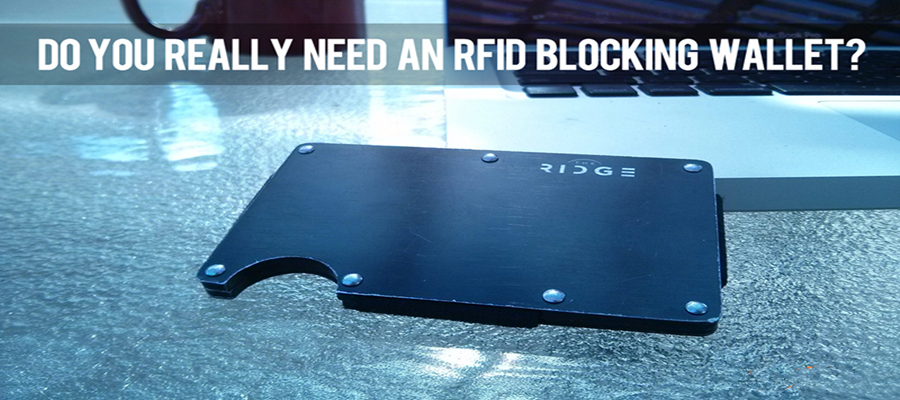Buying a wallet used to be a relatively simple decision. You had your choice of a bifold, trifold, credit card sleeve or maybe just a money clip. Now if you flip through tech or gadget magazine, you’ll find a whole new genre of wallets that are designed with RFID blocking protection. Like this one from Common Fibers and Billetus RFID (Radio Frequency Identification) blocking wallets are, in theory, made to shield your smart cards from identity thieves who use a cheap, handheld RFID scanners to skim your card information from a distance. Once they’ve downloaded your card information, they create a new card with your card number and details. That’s when the real damage starts, because the new cards read just like a legitimate credit card and credit card scanners can’t tell the difference. The criminals can do all of this from several feet away, without you even knowing it’s happening.
With frightening reality in mind, do you really need an RFID blocking wallet? Do they even work as advertised? To some extent they may offer a level of protection, however not all of these wallets work as well as others. Testing by Consumer Reports and others have shown that some of the CXJ RFID blocking wallet on the market work about as well as wrapping your credit cards in a layer of aluminum foil.
It’s also not certain whether the threat of RFID skimming is occurring often enough to truly be a concern for most people. There have been very few reported cases of RFID skimming crimes and for good reason. There are simpler and more effective ways of stealing peoples personal information and money.
RFID technology has improved significantly since it’s inception. Early versions would transmit sensitive information unencrypted, including credit card numbers. However, according to the major credit card companies, the latest RFID payment systems are extremely secure and now use full data encryption. Nevertheless, RFID technology may be dying a slow death as card companies begin the transition to cards with EMV chip and PIN technology, which are considerably less susceptible to remote skimming. EMV cards do not transmit a radio frequency signal, so an RFID blocking wallet isn’t going to do much good with these new cards.
Even if you make the switch to all EMV based credit cards, you may still be transmitting an RFID signal from your drivers license or passport. Luckily, the only information anyone is likely to steal is your name and physical address. Even if compromised, this basic information isn’t likely to make you a fraud or identity theft victim If you fancy yourself as a wannabe James Bond or you’re just a little on the paranoid side, an RFID blocking wallet may be a wise purchase. However, chances are you’ll be ok without one.






